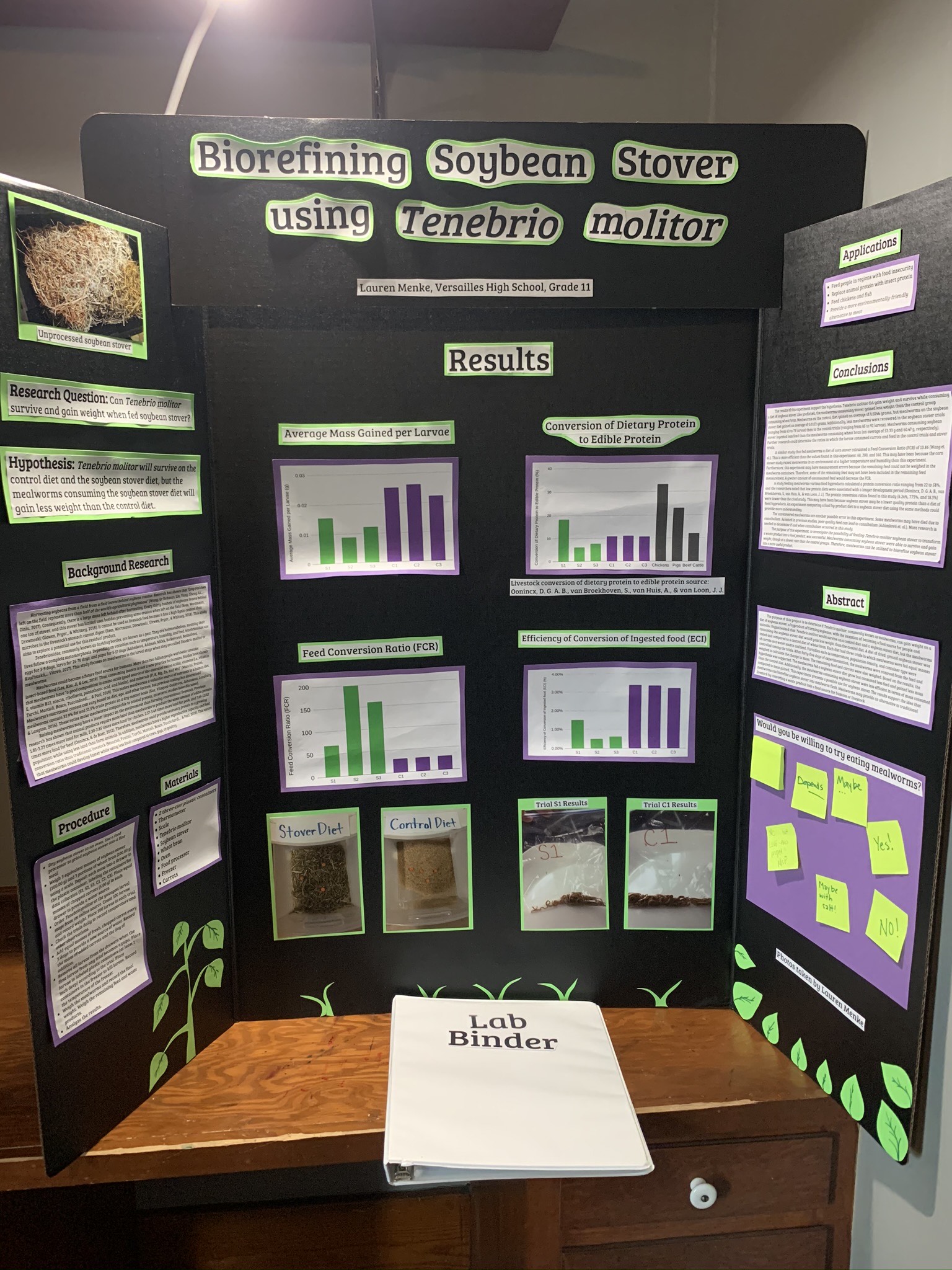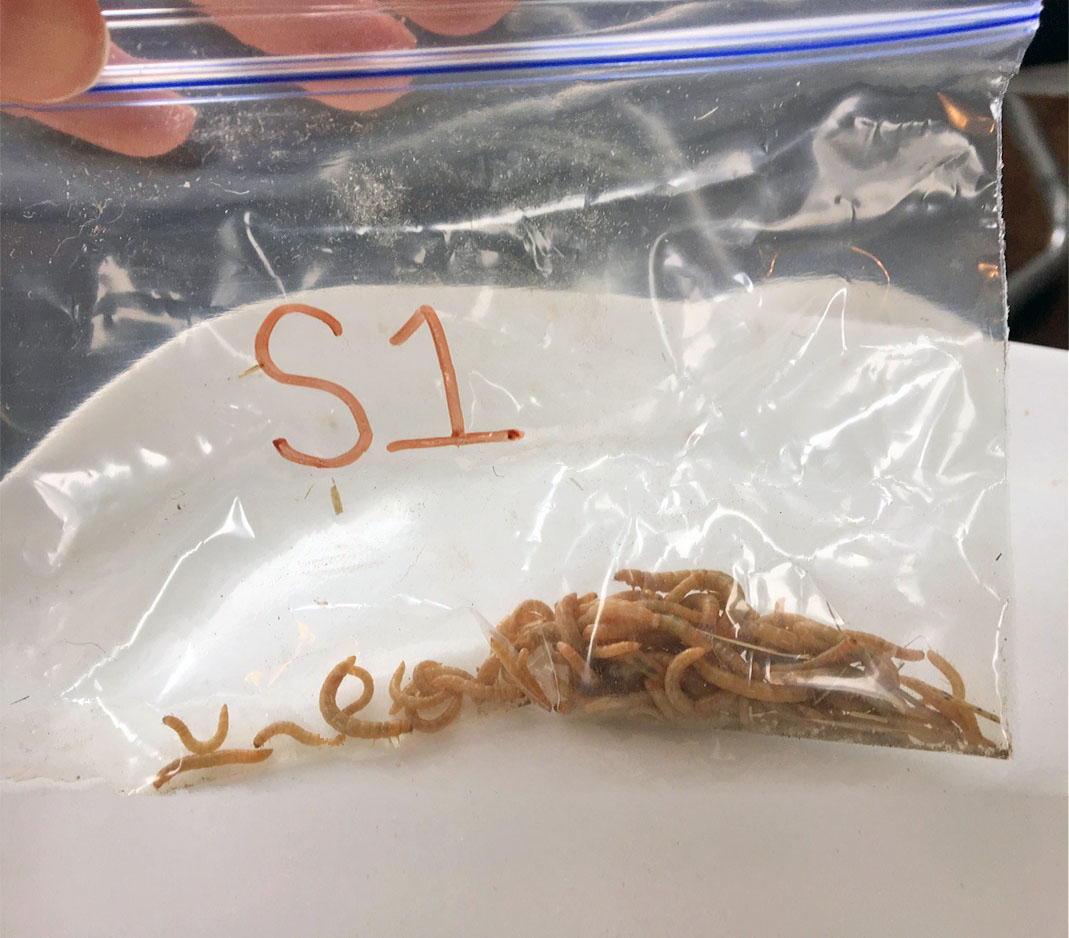The Effects of Feed Type on Tenebrio molitor Weight
Can Tenebrio molitor survive and gain weight when fed soybean stover?
Student
Lauren Menke
Supporting files
lab-report-2020-lauren-menke-1.pdf

The Effects of Feed Type on Tenebrio molitor Weight
The purpose of this project is to determine if Tenebrio molitor, commonly known as mealworms, can gain weight on a diet of soybean stover, a byproduct of farming soybeans, with the intention of becoming a food source for people and livestock. I hypothesized that Tenebrio molitor would survive on a control diet and a soybean stover diet, but the mealworms consuming the soybean stover diet would gain less weight than the control diet. A diet of dried, ground soybean stover was tested and compared to a control diet of wheat bran. Each diet had three trials in which mealworms were fed equal masses of carrots as a water source and feed. Variables such as temperature, population density, and container type were controlled among the trials. After forty-five days of experimentation, the mealworms were removed from the feed and weighed to calculate the change in mass. The remaining feed and carrots were also weighed. Based on the results, the hypothesis was supported. The mealworms fed a soybean stover diet grew but consumed less feed and gained less mass than the control diet. Additionally, the mealworms consuming soybean stover were less efficient in terms of mass consumed compared to mass gained. This experiment presents a possible use for soybean stover. The results support the idea that mealworms can biorefine soybean stover into mealworm flesh. Mealworms may provide an alternative to traditional livestock by converting a waste product into a food source for humans or livestock.
